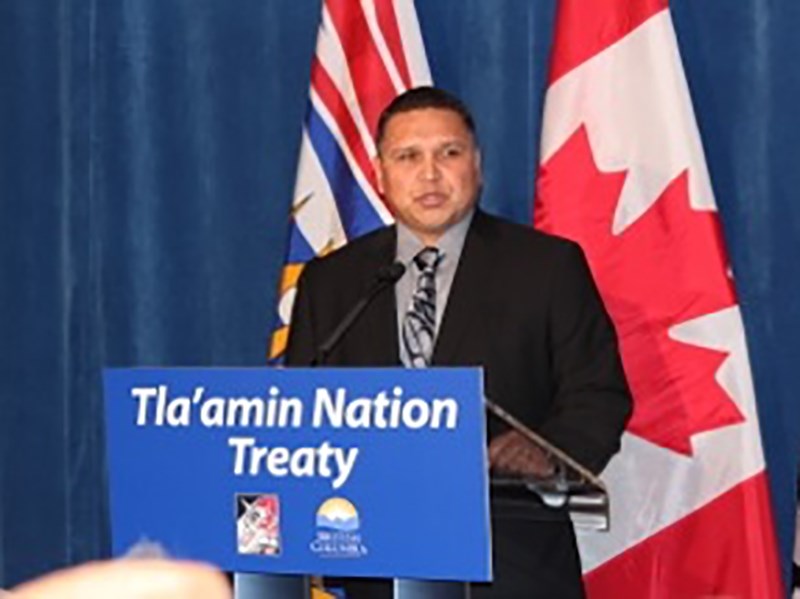Tla’amin Nation chief Clint Williams, his council and staff, have been working at a feverish pace, preparing the necessary laws and regulations to have in place for Tuesday, April 5; the day Tla’amin’s treaty is enacted.
The treaty is 20 years in the making and will place Tla’amin in a very small group of first nations in the province to have successfully concluded the BC treaty process.
Presented here is a shortened version of a conversation between Williams and the Peak.
Chief Williams, you are the last Sliammon chief under the provisions of the Indian Act. Can you tell us how that feels?
In a way, it’s kind of exciting because my grandfather Charlie Peters was the first elected chief after Tom Timothy, our last hereditary chief. So my grandfather was the first and I’ll be the last chief under the Indian Act.
How has Tla’amin been supported by other first nations that have gone through this process?
All the modern-day treaty peoples have been very good in providing advice and experiences they went through with implementation; the Tsawwassen, Nuu-chah-nulth and Nisga’a have all been great. We have a pretty good sense of what to expect. I don’t think you can script everything, but we’ve had some very good help.
Having gone through this process for more than 20 years, do you have any advice for first nations who may be considering pursuing a treaty through the BC system?
One clear message I’d like to get out there to other first nations is that we will share our experiences and knowledge and we’re thankful to those who shared theirs. We look at it as a kind of paying it forward. We will speak and work with any nation that is looking for our advice or help, but the big thing is I don’t want the other nations in the province or in Canada to think we are going to be the poster children for the BC treaty process. We’ve opted into this because of the challenges we’ve had with all the land and resources being tenured off, and to make sure the people can better themselves from the resources within our traditional territory.
How have you found working through the BC treaty process?
There’s been a lot of frustration along the way. Some of our people feel we should not have been in this process in the first place and that has confirmed a divide in our community. It showed with the ratification vote.
How will you work to heal those divisions?
Through the whole process, just because someone was a “yes” voter on the treaty, we are not going to treat them any different than someone who voted “no.” You want to make sure fairness, equality and opportunity are provided to all of our people, not just those who were supportive of the process. We respect their opinion, but we followed through with the mandate we received from the ratification vote.
Any last thoughts on where things stand currently?
You just start getting a little emotional thinking about people who were there at the beginning of the process, but are no longer with us: all the elders, staff, community members and board members who participated. This really has been community driven. You just want to think back and thank them for all their contributions, whether they were for the process or against, their information was helpful in delivering our message to the BC and Canadian governments.



